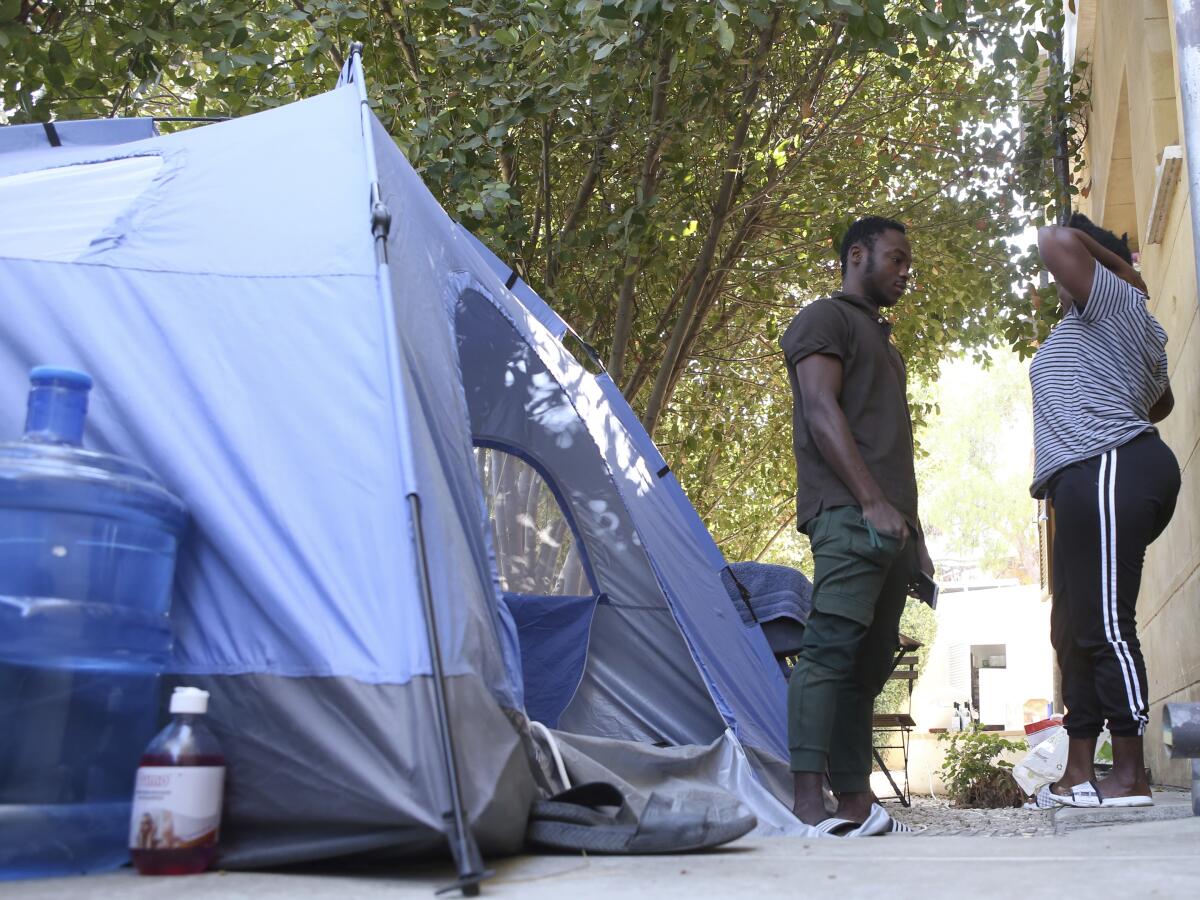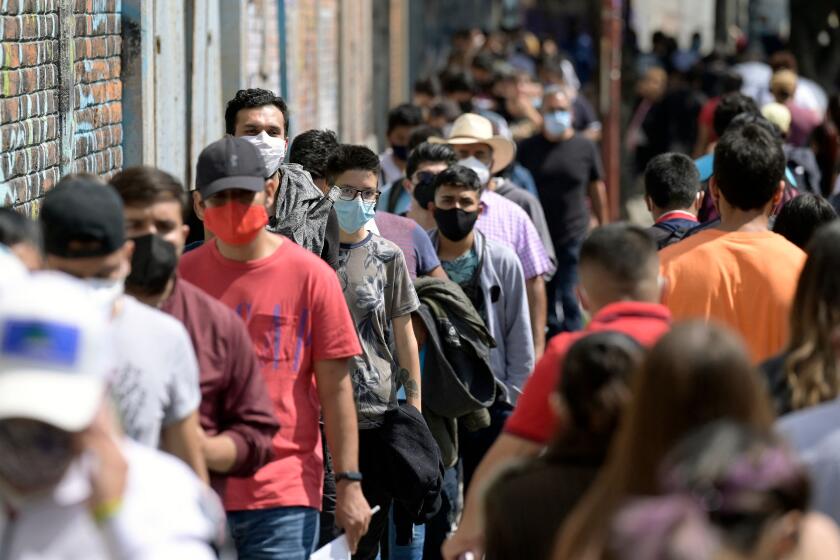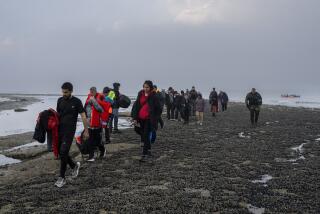Limbo in a blue tent: African asylum seekers stuck on Cyprus

- Share via
NICOSIA, Cyprus — It seems a strange place to pitch a tent.
In the middle of the United Nations-patrolled buffer zone that has divided Cyprus along ethnic lines since 1974, in the heart of the island’s medieval capital, two Cameroonian asylum seekers have lived in a small blue tent for nearly five months.
The breakaway Turkish Cypriot north, through which they entered hoping to reach the European Union-member, Greek Cypriot south, will deport them if they go back. And the south seems determined not to let them in — to discourage more would-be migrants from trying the same route.
To make things worse, the two can see people freely moving between north and south all the time, as their tent is beside a main authorized crossing — one of nine linking the two communities.
Enjei Grace says that she and Daniel Ejube were wrong to try to enter the internationally recognized south that way to apply for asylum.
“We are sorry,” the 24-year-old says with tear-filled eyes, adding that she hopes authorities won’t leave them in limbo “forever.”
“We just pray that they sort things out, it’s not been easy on us,” she said.
The plan was blocked by the White House Vaccine Task Force, exasperating San Diego healthcare providers.
Neither the Cyprus government nor authorities in the breakaway north have directly referred to the case so far. And the government has given no indication that it would let them in, for fear that could encourage other migrants from the Middle East and Africa to see the buffer zone as an easy gateway to asylum.
Cyprus says it has the highest number of first-time asylum applications among all 27 EU members, relative to its population of roughly 1.1 million. Interior Minister Nicos Nouris has told EU Home Affairs Commissioner Ylva Johansson that the country can’t host more asylum seekers “due to the severe burden” on its reception system.
At an EU Asylum Support Office conference in Malta last week, Nouris said Cyprus is “obliged to take significant and drastic” measures along the buffer zone, adding that about 800 migrants crossed it recently within a 10-day span. Nouris added that 15,000 migrants have had their asylum applications rejected but can’t be deported because there’s no coherent EU policy — or agreement with their home countries — on sending them back.
Cypriot President Nicos Anastasiades told fellow EU leaders at a Brussels summit Friday that so far this year the country’s authorities have received 6,800 asylum claims, with 6,250 of those filed by people who crossed over from the north.
The Cypriot government claims that Turkey systematically forwards asylum seekers to the Mediterranean island’s Turkish Cypriot north so that they can create a new pressure point on the south. It says almost 80% of arriving migrants enter illegally across the buffer zone.
Cyprus was split in 1974 when Turkey invaded following a coup by supporters of union with Greece. Only Turkey recognizes a Turkish Cypriot declaration of independence in the north. Only the Greek Cypriot south enjoys full membership benefits. Decades of reunification talks have gone nowhere.
The island’s convoluted politics were lost on Grace and 20-year-old Ejube when they flew, separately, to an airport in the north with hopes of leaving a troubled past behind. Grace says she fled Cameroon to escape civil war and an uncle who sexually harassed her.
Ejube said his father paid for his trip to Cyprus, where he would study and avoid being recruited by Cameroon’s rebel forces. Both he and Grace said they didn’t know about Cyprus’ division.
Grace said the island appeared the “main” available EU destination when she decided to emigrate.
After realizing asylum wasn’t available in the Turkish-Cypriot north, Grace and Ejube say a friend told them in May that they could easily “jump a fence” at night to reach the south.
Luck was not on their side. U.N. police officers patrolling the fenced area at a section of the capital’s 16th century Venetian-built walls happened to notice them and returned them to the buffer zone. Normally, the U.N. passes asylum seekers over to authorities in the south, but this didn’t happen with Ejube and Grace.
They’ve lived there since, with food and clothing donated by the U.N. refugee agency and individuals from both the Greek and the Turkish Cypriot community.
U.N. Peacekeeping Force spokesman Aleem Sidiqque said the Cyprus government “has the responsibility” to accept asylum seekers and that the Force’s job is to coordinate between the two sides to “prevent unauthorized access” to the buffer zone.
Emilia Strovolidou, spokeswoman for the U.N. refugee agency, said Grace and Ejube should be allowed access to asylum procedures according to national, EU and international law. “Despite our interventions with the authorities, access has been denied,” she said.
More to Read
Sign up for Essential California
The most important California stories and recommendations in your inbox every morning.
You may occasionally receive promotional content from the Los Angeles Times.











